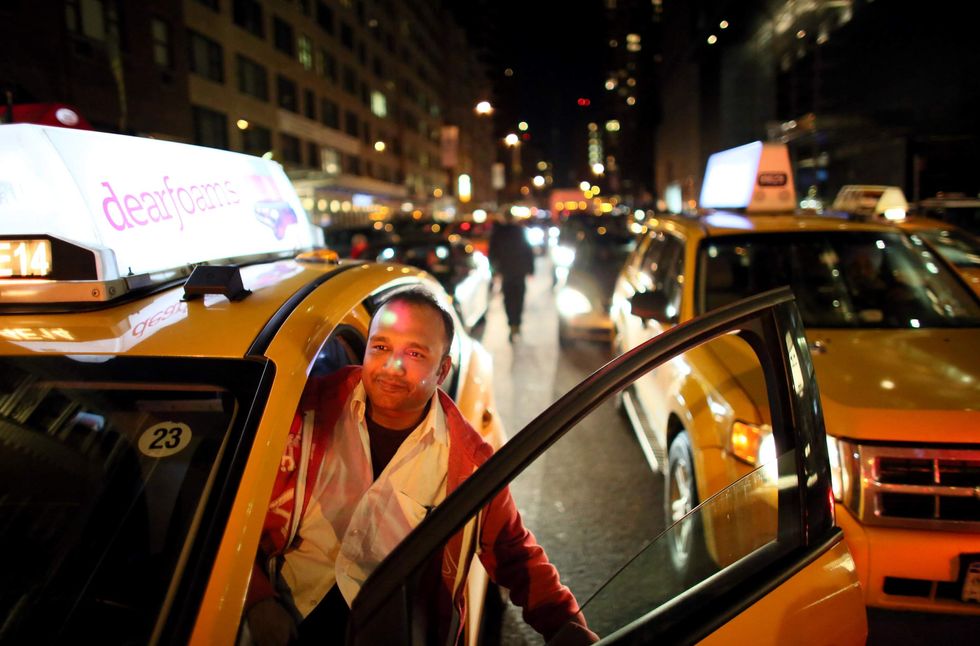
The Georgia Supreme Court recently shot down a lawsuit by a group of taxi drivers who sought compensation from the state for their monetary losses due to companies such as Uber and Lyft being allowed to compete with them.

According to Forbes contributor and Communications Associate for the Institute of Justice Nick Sibilla, The Georgia Supreme Court unanimously upheld a lower court's ruling dismissing a lawsuit alleging that a bill which allowed Uber and Lyft to operate in the state was unconstitutional.
The complaint by taxi companies centers around state law that requires taxi companies to operate under a "medallion system." These "medallions" or “certificate of public necessity and convenience” (CPNC) permit taxi drivers to operate within a city or town. Over 20 years ago, the city of Atlanta determined that it would only allow 1,600 medallions for that city.
The cost of obtaining a medallion sat as high as $80,000 in 2015, according to the Atlanta Journal-Constituion.
However, Georgia lawmakers passed House Bill 225 (HB225) in 2015, opening the door for ride sharing companies such as Uber and Lyft to operate freely on the state level, preempting local laws that burdened the companies. While HB225 banned the creation of new medallion systems on the local level, it allowed medallion systems already in place to remain. Modern ride-sharing companies are not burdened by this system at all, and the resulting increase in competition saw a massive decrease in business for the taxi companies, who couldn't keep up with the cleaner, and more convenient business models of Uber and Lyft.
Wrote Sibilla:
Able to operate more freely, ridesharing has quickly overtaken traditional cabs. For instance, in the first few months after Atlanta allowed Uber and Lyft to pick up riders at Hartsfield-Jackson International Airport, the two companies transported over 250,000 passengers—more than twice as many riders that taxis picked up.Drivers also seem to prefer ridesharing. According to the Brookings Institution, the ground transportation industry added almost 3,000 jobs in the “gig economy,” a rise by 64.5 percent. In contrast, payroll employment fell by 4.2 percent, during the same period, from 2012 to 2014.
According to the Atlanta Journal-Constitution, five unnamed taxi cab drivers filed a lawsuit against the state of Georgia, claiming that the bill constituted an unconstitutional "taking" of private property without compensation. The lawsuit alleged that the loss of exclusive rights to offer rides in the city, and the resulting competition drove down the price of the medallion as low as $2,000.
The drivers claimed that these medallions counted as property, and under the Georgia State Constitution, the state's deregulation of ride-sharing services drove down the price of their property. The drivers claimed this counted as "taking," under the Georgia Constitution, or the state equivalent of eminent domain. The drivers claimed that the failure of the bill to provide them with “just and adequate compensation” for their loss of property value rendered HB225 unconstitutional.
"In other words," wrote Sibilla, "the taxi drivers were asking for a government bailout as 'compensation' for their losses. Federal courts have already rejected that absurd argument in Boston, Chicago, Miami, Milwaukee, Minneapolis and New York City."
Georgia's Supreme Court joined the other courts who have ruled on this issue, voting unanimously to reject the taxi driver's claim that the state owes them money for their losses. Justice Carol Hunstein wrote nine pages on the decision, saying that while HB225 “may have diminished the value" of the medallions, but the taxi drivers are “not entitled to an ‘unalterable monopoly.’
"Though it may be true that an occupational or business license – once secured – can become a protected property right," Hunstein wrote, "there is no argument here that the [new law] deprives appellants of their CPNCs or of their right to engage in the taxicab business; indeed, a CPNC is still necessary to operate a taxicab in the City of Atlanta."
In short, the court ruled that the government did not take anything from the taxi drivers at all. Hunstein summarizes the decision by saying that HB225 "does not take business property for a public use, it merely requires an already regulated business to adjust its property to the new law." Additionally, the law does not prohibit cities from increasing the cap on CPNC ownership, allowing more taxi drivers to be hired.
Hunstein's summary echo words Georgia Republican Rep. Alan Powell, a sponsor of HB225, said in a comment to the Atlanta Journal-Constitution last year when he stated he didn't "know what the hell they’ve got to sue for. We didn’t take anything."
“If their medallions lost value, it is because of an outdated system," he added.